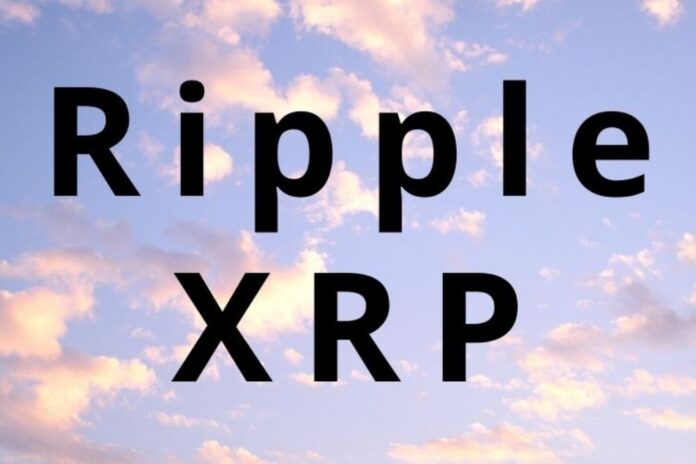Ripple and XRP have been highly misconstrued by many in the crypto space given the cordial relationship between the two projects. The popular misconception is that Ripple is a cryptocurrency with XRP as its ticker. While some crypto enthusiasts think Ripple developed XRP, the 6th largest cryptocurrency by market capitalization.
With these misconceptions flying around, it is therefore important to know the facts about these two separate entities. What exactly do Ripple and XRP represent? How do they relate? This article will give you the answers to these questions.
What is Ripple?
Ripple is a top financial company based in San Francisco that adopts blockchain technology to facilitate instant cross-border payments for customers. It is a leading crypto solutions company and cross-border payment firm that helps customers and partners source crypto, empower their treasury, engage new audiences, lower capital requirements, and drive new revenue.
Released to the public initially in 2012, by its co-founders Chris Larsen and Jed McCaleb, Ripple purports to facilitate secure, instant, and almost free global international remittances of any size with no chargebacks. The company employs XRPL technology to facilitate cross-border payments.
The technology that enables Ripple to offer these enterprise-grade solutions is dubbed RippleNet. RippleNet was developed to provide an alternative to the SWIFT network by offering faster and cheaper global payments through the XRPL and XRP.
Particularly, RippleNet technology employs the native currency of the XRP Ledger known as XRP, to enhance international payments.
In other words, Ripple operates on a peer-to-peer (p2p) decentralized platform that permits the easy and uninterrupted transfer of money in any form, be it in dollars, euros, or cryptocurrencies such as Terra Classic (LUNC) and Cardano (ADA).
What is XRP?
XRP is the native token of the XRP Ledger. The 6th largest cryptocurrency by market capitalization was created by the XRPL founders in June 2012. The digital asset is available on many top crypto exchanges, reaching its all-time high (ATH) of $3.84 in 2018, according to Coinmarketcap data.
Notably, the XRP Ledger (XRPL) is a decentralized, open-source, and permissionless blockchain. Jointly developed and launched by the trio David Schwartz, Jed McCaleb, and Arthur Britto in 2012, the XRP Ledger uses a very unusual consensus algorithm known as the XRP Ledger Consensus Protocol.
XRP has many unique use cases. First, it is the cryptocurrency that powers gross settlements on the XRP Ledger (XRPL) blockchain. Financial institutions use XRP to make cross-border transactions because the XRPL is faster, scalable, and with cheap transaction fees. The distributed ledger can process over 1500 transactions per second.
Additionally, investors also use XRP as a store value and as an investment tool. The digital token also serves as a tool to protect the decentralized ledger (XRPL) from spamming activities.
XRP has a maximum supply of 100 billion tokens. The 100 billion XRP was pre-mined in 2012. 80% of the maximum was given out to Ripple by the token creators while the XRPL developers kept 20% of the XRP supply for themselves.
What’s the difference between Ripple and XRP?
Ripple and XRP are not the same. Though they are often used interchangeably by some, they are both independent entities.
Ripple is a global payments network with banks and other financial services institutions as its customers while XRP is a cryptocurrency launched by the XRP Ledger creators. Ripple is a centralized entity while XRP is a decentralized digital asset.
Ripple adopted XRP to facilitate quick and easy conversion between different fiat currencies. This happened after the XRP creators gifted Ripple 80 billion XRP back in 2012.
XRP is not owned and was not invented by the crypto solutions company, Ripple Labs. Ripple only utilizes the digital token to facilitate prompt conversion between different currencies since XRPL takes 3-5 seconds to complete a transaction.
How to buy XRP
Investors can purchase XRP on several exchanges. Top crypto exchanges that support XRP trading include Binance, Uphold, Newton, and many other centralized and decentralized exchanges.
Coinbase previously supported the crypto token trading but halted it in early 2021 due to the longstanding Ripple-SEC lawsuit. The XRP community continues to pressure the largest United States crypto exchange to relist XRP.
Here are four steps to buying XRP
- Choose your desired crypto exchange or broker
- Select your preferred payment method after setting up your exchange account
- Buy your XRP
- Store your XRP in a secure crypto wallet
SEC case against Ripple
The U.S. Securities and Exchange Commission (SEC), filed a case against Ripple Labs in December 2020 for allegedly conducting a US$1.3 billion unregistered securities offering.
The SEC pointed out that Ripple executives, Brad Garlinghouse, and co-founder Chris Larsen sold 14.6 billion units of XRP for more than $1.38 billion to fund the company’s operations and enrich themselves. The two continue battling it out in the ongoing court case.
In response, Garlinghouse, CEO of financial technology company Ripple Labs criticized the SEC and stated that Ripple Labs would continue to defend itself in court until it sees victory against the filed case. To date, Ripple Labs and XRP have proven to be controversial in that the SEC believes the coin was launched as an unregistered security.
Future of Ripple and XRP
According to some, Ripple’s future success greatly depends on the outcome of the SEC case. In contrast, Fortune Chief Editor James Roberts believes that both Ripple and XRP would succeed regardless of the outcome of the SEC case.
Ripple and XRP have unique use cases including the On-Demand Liquid (ODL) product. Roberts believes this outstanding value proposition would fuel their future success and adoption.
Despite the ongoing case, the XRP Ledger developers are actively creating new features on XRPL. Some of the developments are in the area of smart contracts, non-fungible tokens (NFTs), and sidechains among others.
Follow us on Twitter, Facebook, Telegram, and Google News



